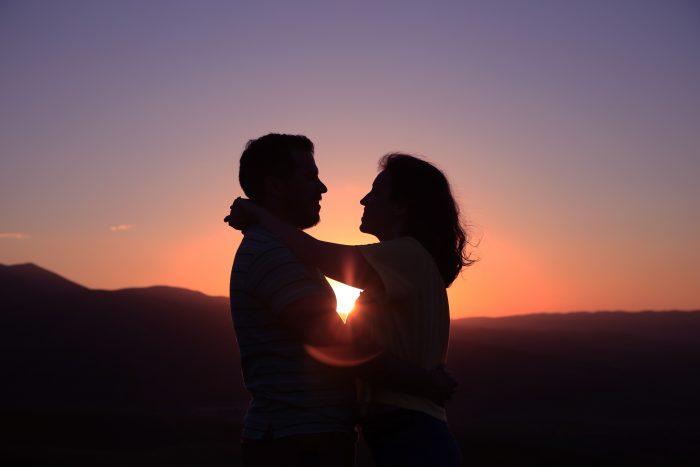Author’s note: to enhance your reading experience click on the music video at the end of the article first then continue reading.
Come October 5th, Venus—the Changer of Hearts—goes retrograde.
Take a moment to look up at our sister planet and watch her highness dragging her heels like a diva as she saunters salaciously past us in all her heavenly glory.
Truly living up to her reputation as the hottest goddess in the solar system, Venus lies second in line to the Sun after Mercury, her skin temperature rising to a scintillating 462°C (863°F).
Her sunscreen and beauty treatment is a cream of covering clouds, comprised of carbon dioxide and sulphuric acid. The perilous precipitation would cause you and I severe dermatological problems, but the corrosive climate seems to make the goddess of love radiant. Quite literally.
Her highly reflective shroud of clouds makes Venus the brightest celestial body in the sky after the moon, earning her the affection, morning star, the muse of many a lovesick poet and pained artist.
In Van Gogh’s The Starry Night, a bright Venus is painted in a swirling violet sky just to the right of a spired cypress tree, and a cradling crescent moon the colour of ripe corn.
Legend has it that Venus was born from the foam of the ocean. As waves of love washed up onto the beach of benevolence she was made manifest to embody beauty, grace, persuasive female charm, seduction, and sexual love.
Venus personifies the fluid female principle that balances and tempers her passionate and proud masculine counterpart, Mars. She embraces and soothes the male essence, uniting the opposites of masculine and feminine in mutual love, respect, and affection.
But with Venus retrograde over the next 40 days and nights, how will the affections of the goddess—who will apparently be ebbing instead of flowing—influence that divine union between men and women?
The retrograde phenomenon has developed something of a bad rap.
A general feeling that things are just not going to go our way, that every stubbed toe and John Doe is somehow due to one backward-spinning planet or another rudely resisting our dreams, and teasing us with tantalising what-might-have-beens.
Let’s change that perception. A planet in retrograde is really an ideal opportunity for us to reflect, to consider our options, and cultivate our consciousness.
It is not a time to leave the barn door open and allow our anxieties to run wild, to blame a perennially passing heavenly body for our bad luck, or relinquish our responsibility to cause and consequence.
When Venus goes retrograde, she is simply passing by our world on her witchy way around the sun. Far from slowing down, Venus actually takes a shorter and faster orbital route than we do, her solar year taking 225 days compared to our own 365.
What’s more, Venus rotates clockwise, the opposite direction to every other planet in our system. So in that regard she is, ironically, perpetually in retrograde motion, causing the Venusian sun to rise in the west and set in the east. Yet she turns so slowly and salaciously on her axis that a Venusian day lasts the equivalent of eight Earth months! It’s practically tantric.
But where has this perception of a retrograde Venus slowing down her journey around the Sun come from? Well it’s exactly that, just a perception.
Think of it like this. You’re driving on the highway in your Tesla, and a big, gas-guzzling truck-and-trailer begins to overtake you. As it rumbles past, you get that weird feeling that your car is slowing down and then going backward! That’s right, you and your vehicle just went retrograde! Only you haven’t, it’s just an optical illusion.
That’s pretty much what happens when Venus va-va-vooms past us on the inside track around the Milky Way. Fast love, baby.
Based on this appearance of retrograde, every bargain bin mystic within half a light year of neither-here-nor-there will be interpreting the effect literally and warning us not to initiate intimate relationships, fall in love, or get married for the next 40 days and 40 nights.
These two-a-penny prophets will often have a handy horror story to retell about failed romances initiated while walking in their retrograde love wilderness. Surely, they insist earnestly, we can live on bread and water for 40 days and nights while wandering in their desireless desert.
Yet it is written, neither man nor woman, shall live by bread alone, but by every loving action devoted to the divine.
Amen to that!
Far from being a time to retreat from love, Venus retrograde is instead a time to honour love, a time to inhabit love, and allow love to inhabit us.
It is a time for patient love, peaceful love, passionate love. It is not a time to deny love, delay love, or dillydally while the cosmic clock is ticktocking, right along with your own biological barometer.
It is a time to allow love to express itself through you, as music is expressed through an instrument.
Be an instrument of love.
But if you’re not convinced by my alternate perspective and you really are stuck and inconvenienced by Venus retrograde, there are plenty of other goddesses of love ready, willing, and able to aid and abet your crimes of passion:
There is the Greek goddess of love: Aphrodite, the Aztec: Xochiquetzal, the Egyptian: Hathor, the Hindu: Parvati, the African, Osun. And the Native American, Atahensic…to name but a few.
Any one of these gorgeous goddesses might help out a lonely heart or a horny devil when Venus is playing hard to get. Not to mention her son, Cupid, who’s pretty handy in a tight spot with his bow of heavy heartbeats and deadly desire-tipped arrows.
The way I figure it, love is like the sun. If you only believe in it when you can see it, you’ll never get through the night. Let alone get through this life.
It is tempting to regard the divine principle of love—in all its beautiful personifications—as our personal protector or provider, especially when we offer up a heartfelt mantra or prayer.
But the truth is, the divine is not in the business of love on demand, or love for reward, or the denial of love as reprimand. The divine loves everything and everyone without attachment, and it is because it has no attachment to who or what is loved, or why, that makes its love unconditional.
On the other hand, we human beings love for a reason, and it is the reason that makes our love conditional. Our job is to convert the raw and unconditional love of the divine into refined conditional love: to feed the hungry, to heal the sick, to liberate imprisoned hearts and minds.
Each human being is like a leaf on the tree of life, photosynthesising raw, burning sunlight into safe and usable love energy. So be a leaf. Be a flower. Be the nectar of the goddess.
Be the fruit of love.
This raw, cosmic energy that is the cause of all existence is called love simply because it allows all things to be. All things. Not just the sweet, innocent, and beautiful things—but also the bitter, cruel, and ugly things.
This can be a difficult truth for the innately tribal human heart to accept.
Ours is a passionate yet primitive heart that fiercely demands a partisan universe instead of an impartial one, a biased divinity instead of an objective one, a cosmic order open to our persuasions and pleading, instead of a untidy perfection that gives and takes away indiscriminately.
But it is evident the universe will not discard its primary principle of impartial, objective, and unconditional love to become attached to one tribe or another, one person or another, and regard them among its favourites because they pray a certain way, burn incense, or stand on their heads.
It’s clear that no matter how we might try to organise the stars, the universe cannot be coerced, persuaded, or bribed.
We are all loved, without prejudice or preference, by the unconditional divine.
The most precious truth we can ever learn is just to be the fruit of love—and be consumed by love in return.
~












Read 8 comments and reply